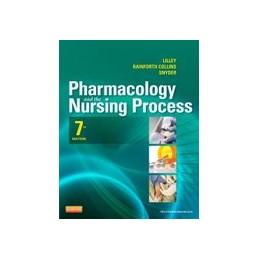- Obniżka


 Dostawa
Dostawa
Wybierz Paczkomat Inpost, Orlen Paczkę, DHL, DPD, Pocztę, email (dla ebooków). Kliknij po więcej
 Płatność
Płatność
Zapłać szybkim przelewem, kartą płatniczą lub za pobraniem. Kliknij po więcej szczegółów
 Zwroty
Zwroty
Jeżeli jesteś konsumentem możesz zwrócić towar w ciągu 14 dni*. Kliknij po więcej szczegółów
This market-leading text is known for presenting challenging content in a clear and consistent format that is engaging and readable. With an eye-catching design, full-color illustrations, and helpful, practical boxed features that highlight need-to-know information, the new edition of this bestseller continues its tradition of making pharmacology easy to learn and understand.
Opis
PART 1: PHARMACOLOGY BASICS
PART 2: DRUGS AFFECTING THE CENTRAL NERVOUS SYSTEM
PART 3: DRUGS AFFECTING THE AUTONOMIC NERVOUS SYSTEM
PART 4: DRUGS AFFECTING THE CARDIOVASCULAR AND RENAL SYSTEMS
PART 5: DRUGS AFFECTING THE ENDOCRINE AND REPRODUCTIVE SYSTEMS
PART 6: DRUGS AFFECTING THE RESPIRATORY SYSTEM
PART 7: ANTIINFECTIVE AND ANTIINFLAMMATORY DRUGS
PART 8: CHEMOTHERAPEUTIC DRUGS AND BIOLOGIC AND IMMUNE MODIFIERS
PART 9: DRUGS AFFECTING THE GASTROINTESTINAL SYSTEM AND NUTRITION
PART 10: DERMATOLOGIC, OPHTHALMIC, AND OTIC DRUGS
